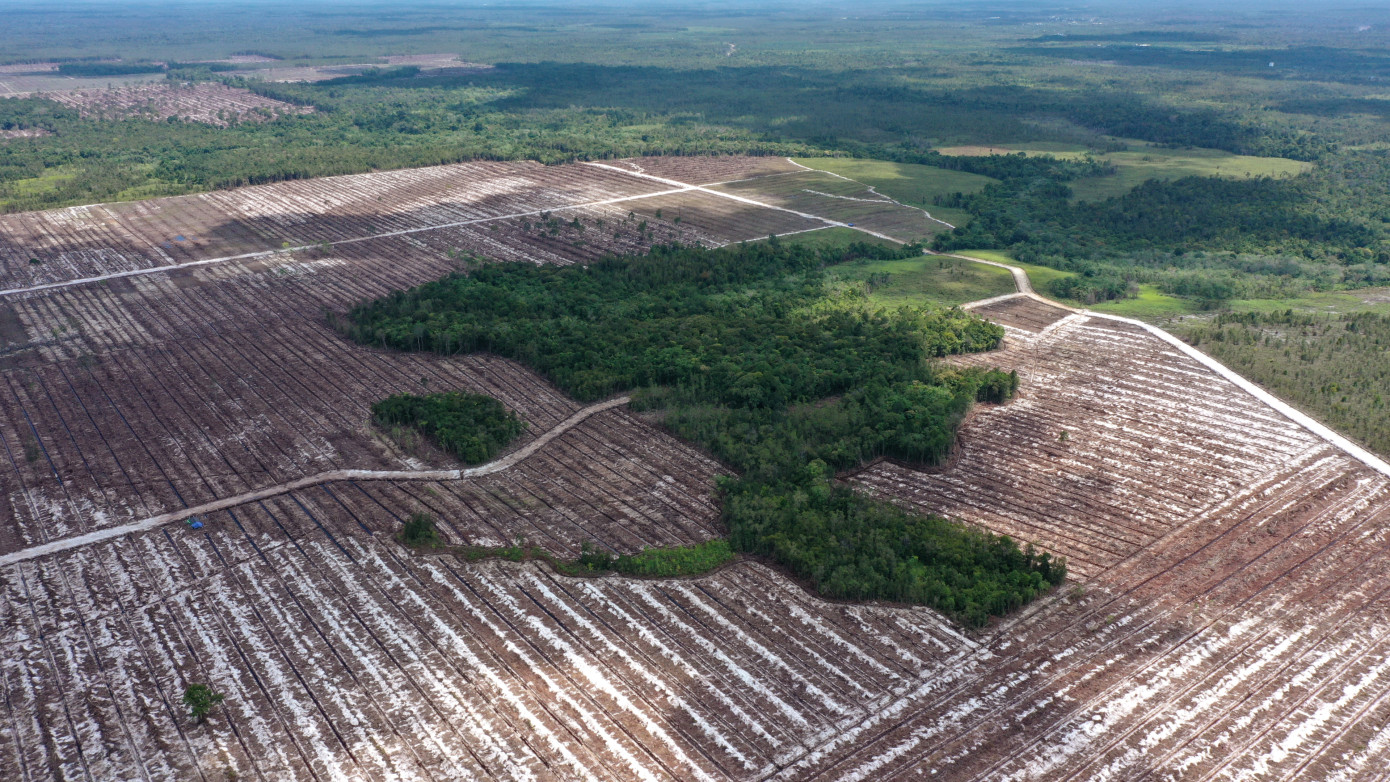Five Indonesian manufacturers exported a total of 23 thousand m3 of plywood, garden decking, and door frames made from tree species native to natural forests to European firms in 2024. Earthsight, a UK-based investigative non-profit, and its Indonesian partner Auriga Nusantara, a forest governance watchdog, claim the timber originated from areas in Borneo that included one of just 19 strongholds of over 1,000 orangutans left in the world.
The two organizations obtained nearly 10,000 internal government records, identifying 65 mills and factories using timber sourced from natural forest clearance in Indonesia—primarily in Borneo. Combined with EU trade data, these records revealed that all of the top five users of such deforestation wood sold products to European countries last year. The exports were sent mostly to the Netherlands, Belgium, and Germany. Earthsight stated that although the shipments were legal, all were at high risk of containing deforested timber.
Auriga Nusantara inspected four forest areas in Central Kalimantan, recently cleared to supply the five Indonesian firms. Thousands of hectares of forest were flattened between the Kahayan and Kapuas rivers. In 2016, this area was estimated to hold up to 2,300 orangutans. Local residents reported losing access to food, materials, and income, leading to confrontations with police and loggers.
Two of the five Indonesian firms exported 88% and 74% of their production to Europe in 2024, while sourcing 3.59 thousand m3 and 2.76 thousand m3 respectively from natural forest clearance that same year. Earthsight and Auriga recorded these volumes in official documents submitted by the companies to Indonesian authorities. While some firms denied sourcing deforestation timber, undercover footage and government data contradicted those claims.
Deforestation timber from PT Mayawana Persada and others reached European importers, including at least two Dutch firms. One confirmed receiving Indonesian plywood in February 2024 and shared harvest site coordinates, where Earthsight found hundreds of hectares of devastated landscape. Despite the findings, the firm said it would continue working with long-time suppliers.
The five Indonesian suppliers’ hardwood products were found in European garden centres and builders merchants, particularly in Belgium and the Netherlands. Earthsight said most of the contacted European companies could not verify the origin of their wood or demonstrate how they avoided deforestation sources, even when marketing products as sustainable. Some pledged future improvements, while others offered no constructive responses. Due to a lack of public information, Earthsight could not determine where most of the timber products ultimately ended up.
Indonesia lost 129,000 hectares of forest in 2024, mostly in Borneo, producing more climate emissions than the Netherlands, Earthsight stated. By 2019, only 36% of tropical forests worldwide remained intact. Logging and agriculture have converted much of Borneo’s rainforest into monoculture plantations, threatening endangered species and Indigenous communities.
The EU Deforestation Regulation, set to take effect on 30 December 2025, would ban imports of timber and other commodities linked to recent deforestation. Earthsight noted that the law has already faced delays and risks further weakening. They argued that without full implementation, European markets remain exposed to destructive timber supply chains.
